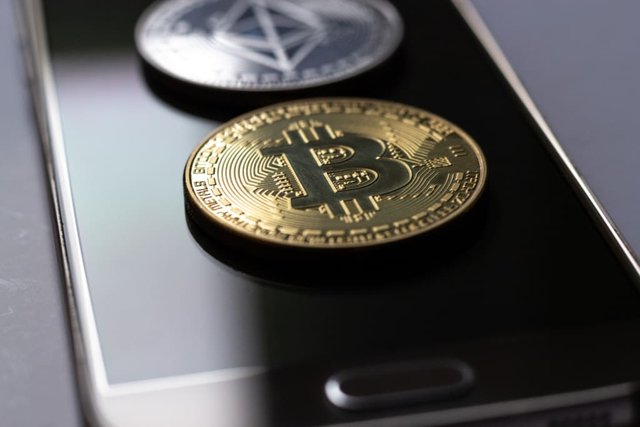The Bank of England is planning a bitcoin-style virtual currency – but could it really replace cash
State-run administrations are incredibly stressed over digital forms of money, for example, bitcoin. These virtual monetary forms mean you can make installments without including the banks that most economies and government monetary models are based on. Individuals can move a lot of cash without the specialists knowing, possibly making it simpler to dodge charges or launder cash.
So a few nations' national banks, including the Bank of Britain and the Bank of Israel, are supposedly intending to send off their own computerized monetary standards. This could assist with baiting individuals back into utilizing an authorization framework that consolidates a portion of the advantages of both conventional and cryptographic forms of money. However, the dangers implied might be excessively perfect for some regular money clients to bear.
One of the significant downsides of existing digital forms of money is that their worth will in general swing broadly and it is frequently challenging to pinpoint the amount they are truly worth. Public cryptographic forms of money would be attached to the worth of the country's true cash, making them less unstable and simpler to use as an approach to spending in fact.
Public digital forms of money would likewise make installments a lot quicker in light of the fact that exchanges would be recorded immediately and wouldn't need to be cleared by a bank (albeit a few executions expect close to eight minutes to be checked). The current frameworks for electronic installments and moves can frequently include a few banks and organizations sending each other information and running security makes sure that adds time and cost to exchanges. Cryptographic forms of money can sidestep this clearing system out and out on the grounds that they don't really include moves starting with one substance and then onto the next.
All things being equal, they utilize an innovation known as a blockchain, which keeps a public yet scrambled record, everything being equal. Essentially, as delineated in the figure beneath, the payer (for this situation, Sway) signs an exchange to consent to pay somebody (Alice) a given sum. The exchange is then approved utilizing Weave's own encryption code known as his "confidential key". Assuming the exchange is substantial, it is added onto the blockchain, recording how much cash Alice and Weave currently have.
Since all exchanges would be kept along these lines, the public authority would have a lot more prominent oversight of who is paying whom and how much, assisting with taking action against monetary wrongdoing. Tragically, on the grounds that exchanges on blockchain records are normally kept as a freely available report, it could likewise be feasible for others to get to this data and perceive the amount you or any other individual is spending and what you're purchasing.
Your cash could likewise be a more serious gamble on the off chance that it's put away as a digital currency. At present, banks monitor your abundance and will constantly deliver it on the off chance that you can demonstrate your personality, while Visa organizations protect you against misrepresentation. In the event that your financial balance is hacked, there is a decent opportunity for you will get your cashback. Yet, digital forms of money store cash in autonomous advanced wallets that can be lost or broken into. Assuming that occurs there is nobody who can help you.
Cash needs trust
For a run-of-the-mill customer, there would be little distinction between utilizing public digital money and something like Apple Pay, which makes installments at the snap of a confided-in application on a cell phone. I love utilizing Apple Pay on my iPhone to buy my espresso in the first part of the day, as well as my transport tickets and, surprisingly, my stopping. I currently have little need for cash and just haul around my charge cards in a wallet as a reinforcement in the event that my battery comes up short.
Having figured out over Christmas that most general stores currently don't have a cutoff on Apple Pay, I consider it to be one of the most confided-in techniques for installment, particularly as I trust the unique mark scanner on my telephone. I additionally realize that my bank is engaged with the exchange. So I trust the times of paper cash - and in any event, hauling around cards - are quickly blurring. Our cell phones and our confidence in our applications give us more confidence in approaches to making exchanges.
Yet, Apple Pay is as yet upheld by confided-in monetary establishments. The move toward digital money might be out of line for the vast majority. Barely any individuals would really comprehend the dangers of putting away the digital currency in a computerized wallet and could leave themselves open to losing all their cash.
I accept that most nations will manage digital forms of money by directing them and checking their utilization as opposed to co-picking them. Be that as it may, it will be fascinating to see whether guidelines or rivalry will win in the clash of digital currencies. While the encryption of cryptographic forms of money can serious area of strength for making trust in the innovation, human confidence in the actual exchanges will probably be the key component that decides if residents take on government-supported digital currencies.
If you like to get rich with bitcoin you can get access from : https://quartzfiles.com/1262369
